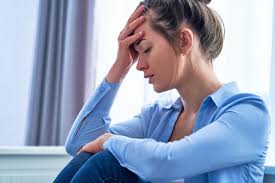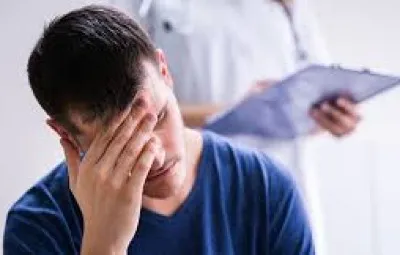Affecting millions of people worldwide, depression can manifest in various forms, from mild to severe, and can have profound effects on an individual's daily life. This article aims to shed light on what depression is, its causes, symptoms, and the most effective treatments available today.
What is Depression?
Depression, also known as major depressive disorder, is a mental health condition characterized by persistent feelings of sadness, hopelessness, and a lack of interest or pleasure in activities once enjoyed. Unlike normal mood fluctuations, depressive episodes can last for weeks, months, or even years. It affects not only the emotional state but also physical health, leading to issues such as insomnia, changes in appetite, fatigue, and difficulty concentrating.

Causes of Depression
The causes of depression are multifaceted and can vary from person to person. Common contributing factors include:
- Biological Factors: Genetics play a significant role in depression. Individuals with a family history of depression are more likely to experience it themselves. Additionally, changes in brain chemistry, particularly involving neurotransmitters like serotonin, dopamine, and norepinephrine, can contribute to the onset of depression.
- Psychological Factors: Personal experiences such as trauma, abuse, or significant life changes can trigger depression. Low self-esteem, negative thought patterns, and chronic stress are also key psychological factors that can lead to the development of depression.
- Environmental Factors: Social isolation, lack of support systems, and living in a high-stress environment can contribute to depression. Furthermore, certain life events, such as the loss of a loved one, financial difficulties, or relationship problems, can precipitate depressive episodes.
Symptoms of Depression
Recognizing the symptoms of depression is crucial for early intervention and treatment. Common symptoms include:
- Persistent feelings of sadness, emptiness, or hopelessness
- Loss of interest or pleasure in activities once enjoyed
- Significant changes in appetite and weight (either loss or gain)
- Sleep disturbances, including insomnia or oversleeping
- Fatigue or lack of energy
- Difficulty concentrating, making decisions, or remembering things
- Feelings of worthlessness or excessive guilt
- Recurrent thoughts of death or suicide
If you or someone you know is experiencing these symptoms, it is important to seek professional help immediately.
Treatment Options for Depression
Effective treatment for depression usually involves a combination of therapy, medication, and lifestyle changes. Here’s an overview of the most common treatment options:
- Psychotherapy: Also known as talk therapy, psychotherapy involves working with a mental health professional to identify and address the underlying causes of depression. Cognitive Behavioral Therapy (CBT) is particularly effective, helping individuals to change negative thought patterns and behaviors associated with depression. Other forms of therapy, such as interpersonal therapy (IPT) and psychodynamic therapy, can also be beneficial.
- Medication: Antidepressants are commonly prescribed to help regulate the brain’s neurotransmitters. Selective serotonin reuptake inhibitors (SSRIs), such as Prozac and Zoloft, are among the most frequently prescribed medications. It is important to work closely with a healthcare provider to find the right medication and dosage, as responses to antidepressants can vary.
- Lifestyle Changes: Making positive lifestyle changes can significantly improve symptoms of depression. Regular exercise, a healthy diet, adequate sleep, and stress management techniques such as mindfulness and meditation can all contribute to better mental health. Additionally, reducing alcohol and drug use, staying connected with supportive friends and family, and engaging in activities that bring joy can help in the recovery process.
- Alternative Treatments: In some cases, alternative treatments such as acupuncture, herbal supplements, or light therapy can complement traditional treatments. However, it is essential to consult with a healthcare provider before starting any alternative treatment to ensure safety and effectiveness.
Conclusion
Depression is a complex and challenging condition, but it is also treatable. With the right combination of therapy, medication, and lifestyle changes, individuals can manage their symptoms and lead fulfilling lives. If you or someone you know is struggling with depression, reaching out for professional help is the first step towards recovery. Remember, you are not alone, and help is available.
